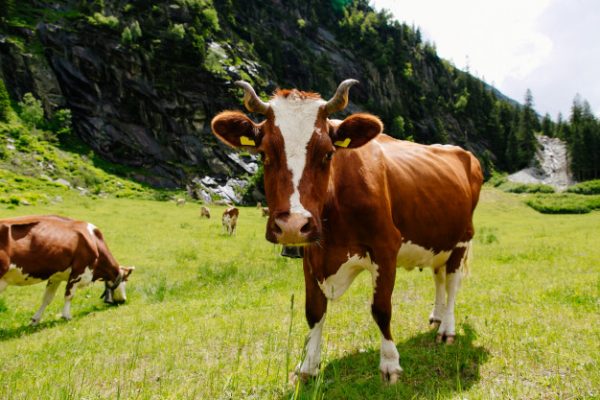Petschar addresses the 2020 Austrian dairy market, looks to 2021

The market development in Austria in 2020 was characterised by high tensions and uncertainties due to the unique situation with the corona pandemic and lockdowns. At the beginning of the year, farmers’ demonstrations took place in front of retail chains due to low prices on agricultural goods, but immediately afterwards the first lockdown in the spring brought about a sudden, massive shift in the sales channels.
The ups and downs on the product markets led to a certain stabilisation of the markets and an improvement in the prices paid out for local farmers, who also have to struggle with additional costs. The average payout prices achieved in this year (January to October) were 34.55 cents/kg (2019 34.36 cents / kg) for GMO-free quality milk with natural ingredients without surcharges and without VAT. The values could be improved from summer and were at 36.72 cents/kg in October (2019: 33.83 cents/kg).
When the corona pandemic hit the Austrian dairy industry with full force in the spring, there was an abrupt lack of gastronomy and tourism demands during the normally high delivery times and this made the life of the dairies in tourist areas particularly difficult. Quantity control measures were necessary in several dairies.
Also in the latest lockdown set in motion in December, Austrian dairies as suppliers to the catering industry, tourism or wholesaling have been massively affected by lost sales. The processors have had to take organisational and additional hygiene measures for the safety of employees and customers, which also resulted in additional costs.
But thanks to these safety measures and additional efforts on the part of the companies, it has still been possible to guarantee security of supply despite the short-term change in demand in the food retail sector, notes the president of the Association of Austrian Milk Processors (VÖM) Helmut Petschar.
Foreign trade in Austria has so far been very positive in 2020, as exports increased by 4.4% by August, while imports fell slightly by 0.3%, according to the available figures from Statistics Austria.
Milk deliveries in Austria were at the beginning of 2020 higher than at the beginning of 2019 and since May lower – so overall, this should roughly match the previous year’s level. 19.1% of Austrian milk meets the organic standard.
The Austrian quality strategy was still developed even under the difficult conditions of the corona crisis. Essential components are the GMO-free, the high production and processing standards according to the Austrian food code and the AMA seal of approval including strict controls, innovative and sustainable packaging solutions, high animal welfare and sustainability standards. The country has also a high proportion of organic farms and other quality programs such as hay milk or organic meadow milk.
“We therefore see it as justified and necessary that these additional services benefit the farmers in the form of improved producer prices compared to international developments”, explains Helmut Petschar.
Petschar is reportedly delighted that in 2020 the protection of names for milk and dairy products has been strengthened in the EU Parliament. The VÖM president underlines that this must also be implemented consistently in Austria, so unauthorised use of the protected terms ‘milk’, ‘butter’, ‘yogurt’, ‘cheese’ and other dairy products is stopped accordingly.
Most recently in Austria there have been attempts to compress the best dairy products into nutritional profiles and bans on advertising.
“It must not be that, for example, best, unchanged organic milk with natural fat content may no longer be advertised, also that children are denied bread or cheese bread, as required by the National Nutrition Commission of the Ministry of Health. Here common sense, measure and goal are required in nutrition policy,” says Petschar.
The corona crisis has shown how important the supply of food is. Milk is an essential part of the diet of the Austrians; it represents one of the most important sectors of agriculture and is a key branch in rural areas, especially in mountain regions. The VÖM president therefore finds that joint efforts are necessary for positive further development in 2021:
- Safeguarding and further development of the near-natural Austrian dairy industry in the common agricultural policy of the EU and in the national programmes, especially in mountainous and disadvantaged areas, compensation for naturally-related increased collection costs, investment priorities to further improve animal welfare;
- Improvement of competitiveness and support of the quality strategy, feasible standards in the organic sector, support of the production and processing location Austria, avoidance of additional cost burdens and requirements;
- Mandatory labeling of origin and creation of the legal requirements so that the consumer can make an informed decision about different qualities associated with the origin;
- More transparency and fairer distribution of added value along the food chain, effective measures to eliminate structural competitive disadvantages for producers and processors, measures to curb private labels, implementation of the EU directive against unfair trading practices;
- Further development of AMA Marketing as a valuable support instrument for quality policy and marketing, support in export, solidarity-based financing by all participating sectors, focusing activities on contributing sectors, better structural integration of the participating sectors;
- Avoidance of excessive, cost-increasing, inefficient and impractical requirements in the environmental and packaging area, e.g. no excessive reusable quotas and no deposit on disposable packaging in the milk sector.
